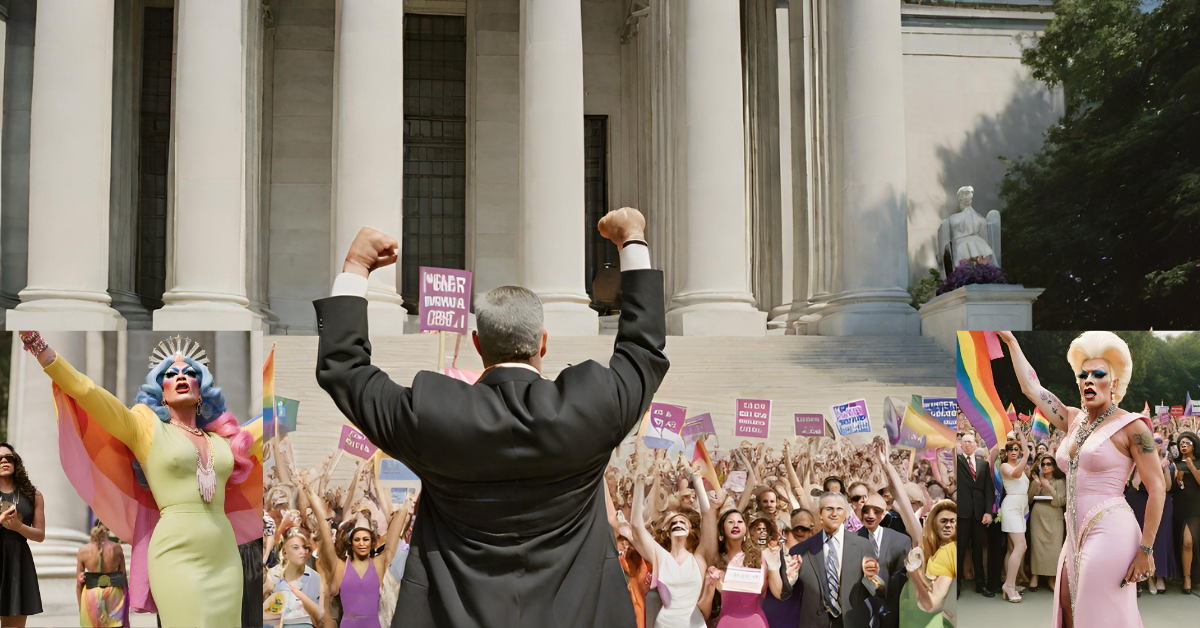Texas Drag Ban Ruling : US Judge Upholds Freedom of Expression | LGBT Rights Victory
In a landmark ruling that resonated across the nation, U.S. District Judge David Hittner made a stand for freedom of expression and the LGBT community. The judge’s decision to overturn Texas’ controversial ban on public drag performances has ignited conversations about constitutional rights, discrimination, and the evolving landscape of civil liberties in America.
The Ban
The law, steeped in controversy from its inception, sought to limit public drag performances, a move seen by many as a direct affront to the LGBT community. It was a piece of legislation that didn’t just ripple through Texas but sent shockwaves across the nation. Was this protection of the innocent, or was it censorship and discrimination clothed in legal jargon?
The Ruling
Judge Hittner’s ruling was unequivocal. The law was not just an unconstitutional restriction on speech but was discriminatory and improperly vague. In his words, not all might condone certain performances, but that in itself does not strip away the First Amendment protection. It was a victory for not just drag performers but for the sanctity of the constitution.

The Implications of Judge Hittner’s Decision
First Amendment Rights
The ruling underscored the inviolability of First Amendment rights. It was a reminder that the constitution does not discriminate, and neither should the law. Every art form, every expression has its place in the diverse tapestry of American culture. The judge’s decision was a beacon of hope, a light piercing through the encroaching darkness of censorship and discrimination.
The LGBT Community’s Response
The LGBT community, long embattled and often at the frontline of civil rights struggles, embraced the ruling. It wasn’t just a legal victory; it was a reaffirmation of their place in society, a statement that their voice mattered, that their art was significant.
A Closer Look at the Texas Ban
The Law’s Provisions
The law was as controversial as it was sweeping. It banned “the exhibition of sexual gesticulations using accessories or prosthetics that exaggerate male or female sexual characteristics” in public or venues where minors may be present. But was this protection or discrimination?
Public Reaction
The public was divided. While some saw it as a necessary step to shield the young, others viewed it as an affront to freedom, an attempt to mute a vibrant, essential part of the cultural conversation.
The National Landscape
Similar Bans Across the US
Texas was not alone. Other states too had sought to impose similar restrictions, each facing staunch opposition, each a battleground where the soul of the nation was contested.
The Role of the ACLU
The American Civil Liberties Union of Texas was instrumental in this legal victory, a testament to their unwavering stand for civil liberties, a reminder of the ongoing struggle for a nation where all voices are heard, all expressions valued.
The Cultural Impact
Modern Drag Culture
Modern drag is not just entertainment; it’s a statement, a vibrant testament to the diversity and dynamism of the LGBT community. It’s an art form, a cultural phenomenon, a voice.
The Intersection of Art and Rights
This ruling underscored the intrinsic link between art and civil rights. It reminded the nation that to mute expression is to mute democracy, to silence art is to silence voices, to ban performances is to ban freedom.
Conclusion
The Path Forward
The ruling by Judge Hittner isn’t just a legal precedent; it’s a cultural milestone, a statement that America remains a land where freedom of expression is not just a constitutional right but a cultural norm.
Remaining Challenges
Yet, the journey is far from over. Each victory is a step, each ruling a milestone, each decision a reminder of the ongoing journey towards a nation where all are free to express, to be, to live.














+ There are no comments
Add yours